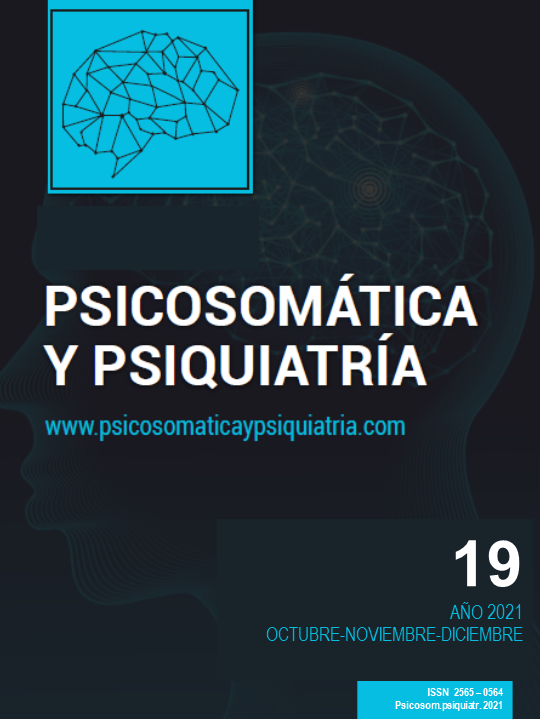Gilles de la Tourette Syndrome and Substance Abuse: A Case Report
Article Sidebar

Main Article Content
ABSTRACT
INTRODUCTION: Gilles de La Tourette Syndrome (GTS) is a complex neuropsychiatric disorder characterized by motor and vocal tics, with a significant impact on patient’s quality of life. The overlap between the neurobiological mechanisms, comorbidities and the search for a symptom relief are among the factors that make these patients vulnerable for the use of substances.
OBJECTIVES: Regarding a detailed description of a clinical case, to carry out a review and reflection on the possible relationships between the GTS and substance use.
METHODS: Description of a clinical case of a patient diagnosed with GTS and comorbid substance use. A non-systematic literature review was carried out through bibliographical research in the databases – Pubmed and Clinical Key – using the keywords: “Tourette Syndrome”; “Substance Abuse”; “Cocaine Abuse” and “Cannabinoid Abuse”. No restrictions were applied to the publication date of the researched articles.
RESULTS: A clinical case of a patient with GTS diagnosed at age 11 is reported. A condition of severe and refractory symptomatology, characterized by motor and vocal tics, obsessive-compulsive symptoms and attention deficit. A path marked by countless hospitalizations and pharmacological approaches without results, requiring the use of neuromodulation strategies. Concomitantly with the picture described, there is a beginning of cannabinoid use at 25 years old, described by the patient as self-medication and later cocaine, at 29 years old, a consumption that she continues to this day. Patients with GTS are particularly vulnerable to substance use, which have deleterious effects on their symptoms, namely cocaine, amphetamines and heroin. However, substances such as cannabinoids, often used as self-medication, are reported by patients as having a beneficial effect on motor and vocal tics and are currently proposed as a possible therapy in GTS.
DISCUSSION AND CONCLUSION: The tendency for using substances in GTS patients and its negative effect on symptoms, joins the positive effect described in relation with substances such as cannabinoids. Regarding a complex clinical case, a holistic approach becomes demanding, in which the risk of consumption should be kept in mind, but also the possible positive effects regarding some substances. These considerations can contribute to the development of new therapeutics in GTS syndrome.
Article Details
Drets d'autor
Aquesta obra està publicada sota la llicencia Reconeixement-CompartirIgual 4.0 Internacional (CC BY-SA 4.0)
Els autors mantenen tots els drets d'autor i la revista es reserva els drets de la primera publicació de l'article